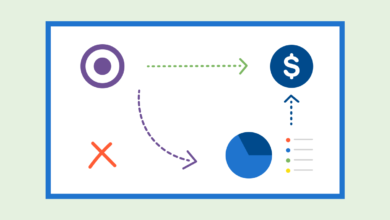U.S. Financial Success: How to Navigate Business Accounting in 2025

In the year 2025, along with the growth of technology and its impact on accounting procedures, effective business accounting is essential. It is important to keep in mind the different finances for different businesses in order to promote growth, keep the company well, and go hand in hand with the evolving technologies. This article highlights some of the futuristic accounting practices, strategic planning, the use of technology, and other business essentials in the accounting field for your U.S.-based company.
Why Business Accounting is Important for Companies in the U.S.
For small to medium to large scale companies, maintaining an accurate profitability statement works as a cash flow as well as the primary building block for calculating the overall USD business expansion. Up-to-date records in the business accounting statements speak volumes and on the order:
- Proactive Business Schemes: Estimates provided through proper data assist business owners in drafting concrete leads.
- Legal Framework: Dependable records according to USD financial rules certainly maintains the legal health checklist.
- Productivity: Well organized accounting practices save time, energy, increase efficiency, and drastically cut repetitive mistakes.
Modern Accounting Practices for American Businesses in 2025
To survive the zestful competition in the current business era, a corporation must take into account the traditional business models and should implement these additional methodologies:
Further Develop Use of Technology
The application of various technologies in financial transactions is critical for improving efficiency and precision in accounting practices. They are significant and impactful for your business’s profitability and accounting accuracy.
- Cloud-Based Accounting: Accessing their financial information remotely, collaborating in real time, and ensuring security has made moving to the cloud increasingly popular among U.S businesses. QuickBooks and Xero are highly popular in the U.S due to their lack of integration issues with U.S. financial systems.
- Automation: Routine tasks such as payroll, invoicing and expense management can now be automated. This saves time valuable for strategizing and minimizes errors. U.S business can automate payroll through partnerships Gusto and ADP.
- Artificial Intelligence (AI): AI tools can assist U.S. businesses with budgeting, fraud detection and a multitude of other tasks. Employing AI in data analysis, forecasting, and recognizing financial patterns would allow for better informed proactive decision making.
Prioritize Cybersecurity Measures
Safeguarding digital financial data from cyber threats must be the primary concern for U.S Businesses given today’s cyber threats.
- Security Protocols: Sensitive data is best protected by strong passwords, multi factor authentication, routine security audits of the organizational infrastructure, and strong internal data privacy policies. U.S businesses should be cautious of data privacy laws like California Consumer Privacy Acts and other state regulations.
- Employee Training: Staff should be trained on following security protocols, identifying risks, and reporting security breaches.
Monitor Finances in Real Time
U.S Businesses should incorporate the option to monitor finances in real time allowing them to respond immediately to financial changes as they happen.
- Real-Time Dashboards: Financial dashboards allow constant tracking of all KPIs and cash flow. QuickBooks and Xero users in the U.S. can connect these dashboards to their systems for a comprehensive overview of their finances.
- Regular Reconciliation: Performing reconciliations regularly maintains the integrity of financial reports, helping address issues early on. This is crucial for U.S. businesses that operate quarterly and have to file taxes.
Strengthen Financial Controls
These controls are necessary for all U.S. businesses if they want to reduce fraud and improve the accuracy of their reports.
- Approval Workflows: Define spending approval policies in order to adhere to budgetary control measures. Many U.S. businesses leverage Bill.com for automated approval workflows.
- Documentation: Support audit trails and financial reviews by capturing all transaction records. GAAP (Generally Accepted Accounting Principles) compliance allows companies in the U.S. to meet federal and state requirements.
Commit to Ongoing Professional Development
U.S. companies need to keep pace with new trends and technologies as these are constantly changing the financial landscape.
- Continuous Education: Funding of workshops focused on new financial laws and regulations, alongside supporting staff to attain CPA certifications, should be implemented for accounting personnel.
- Industry Engagement: Position oneself to acquire and disseminate emerging best practices by attending forums and networks for vertical.
Using Accounting Software to Improve Productivity
For USA businesses that want to optimize their financial processes, choosing the right accounting software is a top concern. Here are some highly rated ones for 2025:
QuickBooks Online
- Overview: Important for its ease of use and great functionality, QuickBooks Online provides real-time updates into the firm’s finances, automated invoicing, and integration with many other third party software such as U.S. payroll services like Gusto.
- Why It’s Ideal for US Businesses: QuickBooks is popular among small to medium-sized businesses all over the United States so it easily integrates with other US tools.
Xero
- Overview: Particularly appealing to small and medium businesses, Xero provides unlimited access to users, automatic bank reconciliation, and strong inventory control.
- Why It’s Ideal for U.S. Businesses: Xero works well with many US-based applications like Shopify and Stripe making it ideal for e-commerce and service oriented businesses.
FreshBooks
- Overview: Tailored for freelancers and small business owners, FreshBooks makes managing invoices, time tracking and expenses easy.
- Why It’s Ideal for U.S. Businesses: FreshBooks is beneficial for small businesses in the United States who are trying to grow in a stress-free environment because of its simple tax preparation features and integration with other US payment systems like PayPal.
ZOHO BOOKS
- Overview: Zoho Books provides a complete accounting solution with automated processes, integration with other Zoho applications, multi-currency functionality, and workflow automation.
- Why It’s Optimal For U.S. Businesses: The integration of Zoho Books with Zoho CRM and other tools based in the US provides comprehensive financial management, making it ideal for US businesses.
SAGE INTACCT
- Overview: Sage Intacct offers multi-entity consolidations, automated revenue recognition, and advanced financial reporting for larger enterprises.
- Why It’s Optimal For U.S. Businesses: Sage Intacct is designed with complex financial structures in mind and is beneficial for US businesses with multiple entities or those in regulated fields.
Adapting to Changes in US Business Regulation In Accounting
To avoid legal implications and business reporting complications, compliance with changing financial regulations is crucial for American businesses. For the year 2025, the primary focus includes the following:
- Non-GAAP Metrics: The FASB is looking into defining standardized non-GAAP performance indicators, which indicates a move towards enhanced transparency in reporting. These changes are critical to the U.S. businesses and require proper disclosures to abide by regulatory frameworks.
- Climate Related Disclosures: According to the SEC, businesses must now disclose material risks pertaining to climate change that impact financial statements and require strong reporting systems. Changes of this kind may have a bearing on the accounting practices and financial reporting of U.S. businesses.
Conclusion: U.S. Business Accounting Avenues for 2025
In 2025 accounting in the U.S. will have to be efficient not only by incorporating advanced technology, but also by clarifying policies and planning financially. The adoption of cloud computing, process automation, and investment in continual education and training will improve the financial and operational efficiency of U.S. businesses. As always, keeping up with regulatory developments, having appropriate accounting systems in place, and compliance with accounting principles and standards such as GAAP will remain critical for achieving success over the long term.
Ready to take control of your business’s financials? Head on over to www.FinanceDeep.com for tailor made information and guidance on accounting, tax compliance, and financial management for the United States in 2025.





